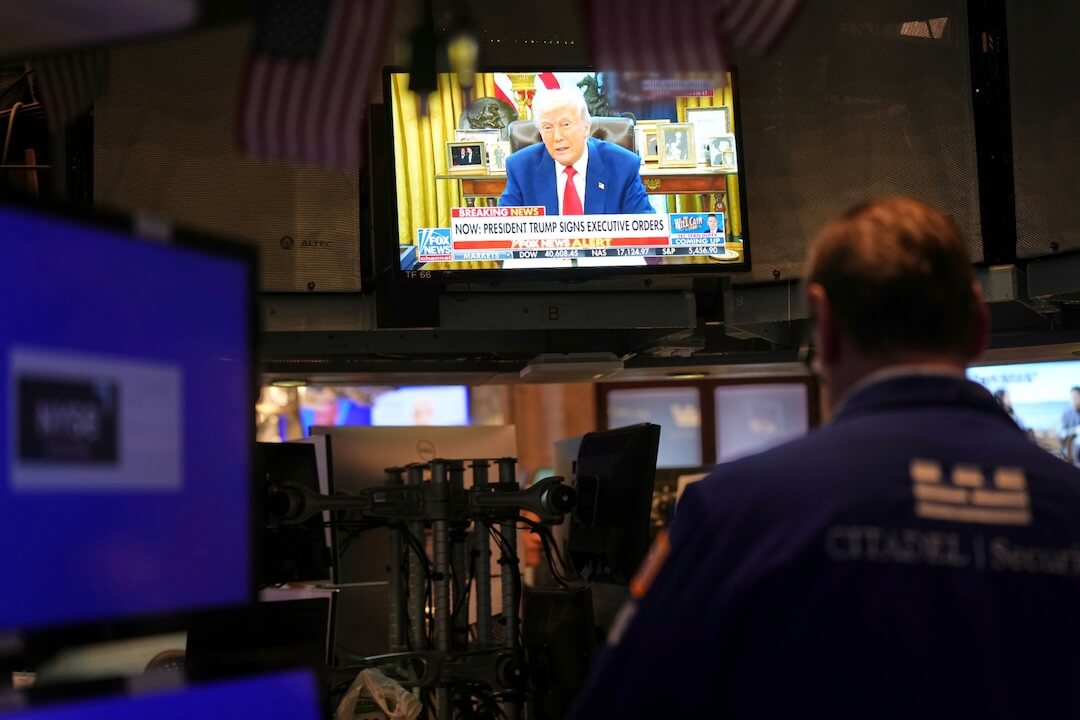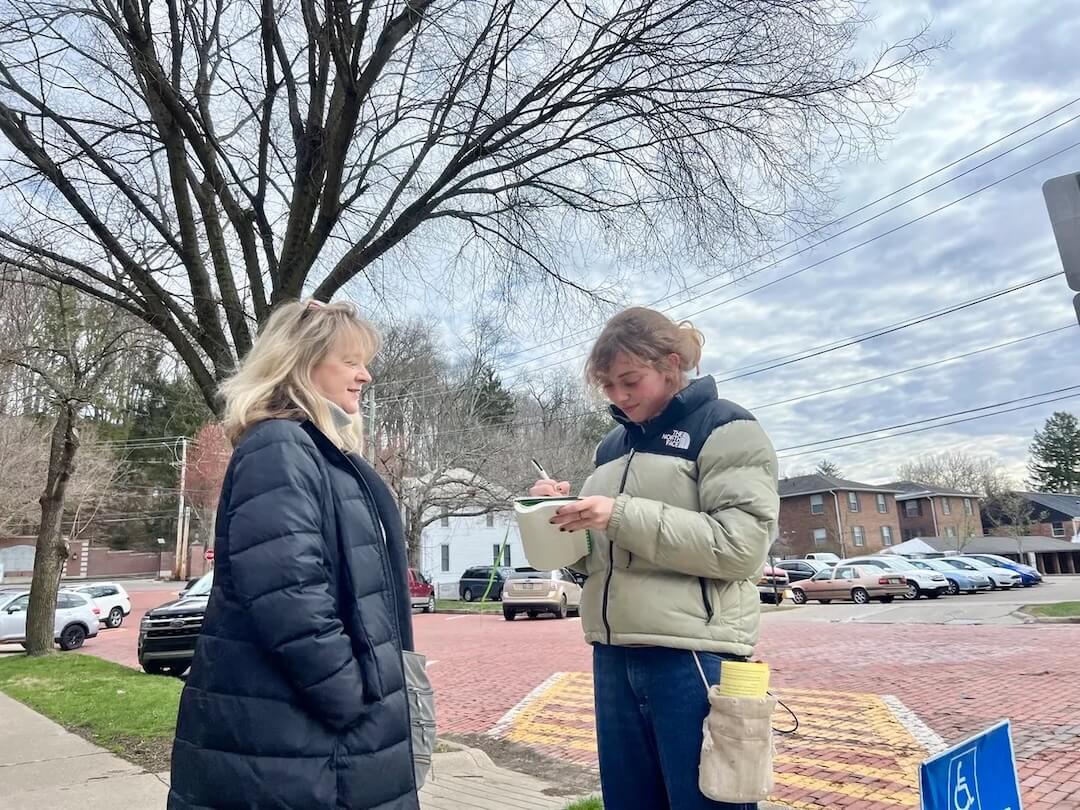The Week in Fact-Checking is a newsletter from the American Press Institute and Poynter. Want it in your inbox every week? Subscribe here.
On Le Monde, Adrien Sénecat has an excellent deconstruction of how satire and hyperpartisan truth-twisting can result in real misperceptions.
Step 1: A satirical site writes that French presidential candidate Emmanuel Macron, caricatured as out-of-touch, feels dirty after touching poor people’s hands. Step 2: Hyperpartisan Facebook pages take this at face value, mixing in footage from a video of Macron cleaning his hands after handling an eel. Step 3: A worker in a northern factory challenges Macron to shake his dirty, working class hands.
While we shouldn’t generalize from one example — nor is it certain the critical worker was referring to those posts specifically — this is interesting anecdotal evidence of how fake news can have real effects.
Quote of the week
“Truth in politics is a common good just like clean air and water, and pollution of truth will devastate our political system just as environmental pollution devastates our physical health. Fortunately, we can learn from the successes of the environmental movement.” — Gleb Tsipursky in HuffPost.
You can now fact-check Google
Those featured snippets at the top of Google results can be very helpful — or way off. As of this week, Google has increased the feedback options so that users can signal that a snippet is misleading or inaccurate. Here’s how it works if you want to fix the result for “first black President of the United States.” (Related: Ben Thompson of Stratechery is “not OK” with the lack of transparency in other changes Google announced.)

Brazil’s fact-checking boom
The Brazilian fake-busting space is getting crowded, with more than 40 journalists working full time or part time in fact-checking initiatives across the country. But there’s still plenty of work for everyone, reckons Cristina Tardáguila of Lupa.
A recap on French fact-checking
It will be Macron vs. Le Pen in the second round of the French Presidential election, so Libération collected their best first-round whoppers. … BuzzFeed had previously fact-checked a widely shared table comparing the cost of politics in France and Germany. … On the night of the election, the Ministry of the Interior urged people not to fall for fake election results. … The Oxford Internet Institute studied the spread of “junk news” in France, Germany and the United States — and its findings were duly sensationalized.
Fakery at GoFundMe
A tip for any journalist covering the aftermath of highly public tragedies: Watch out for fake fundraisers. Read The Washington Post’s “Intersect” writers’ warning about the case of the man whose killing was streamed live on Facebook.
More fact-checking tips
This week’s collection of resources for teachers and trainers: This comedian shot a video in the style of a makeup tutorial to demonstrate how to file a FOIA request. … Go behind the scenes of a debunking by CrossCheck. … PolitiFact has a new list of 156 web sites that “work hard to fool readers.” … Teen Vogue offers five steps to improve media literacy. … Take this quiz and test your own skill at spotting misinformation.
Do you  the truth?
the truth?
Chequeado brought the “post-truth” debate to the streets of Buenos Aires. The result is this feel-good video.
Is Wikitribune a fix for “broken news?”
Wikitribune, a news platform proposed by Wikipedia co-founder Jimmy Wales, claims that “the news is broken and we can fix it” with a group of community volunteers and paid journalists who will “only write articles based on facts that they can verify.” Reactions are varied, and we’ve crowdsourced some for you here: Volunteer work is harmful to the profession of journalism (The Atlantic). News written by the people and for the people is a good thing (NiemanLab). As a model, Wikipedia is generally reliable but understaffed (Vice). Demand is uncertain for such a project (Polis). Similar efforts — thought not with Wales’ firepower — have failed (Fortune).
The efficient fakers’ strategy
Must-read from Craig Silverman at BuzzFeed: TrueTrumpers.com “shows that as long as you have a big Facebook page and can craft rage-inducing headlines and thumbnails, your website can literally have almost zero content and still make money.”
No, Prime Minister
On air, highly-produced fact-checking with the politician in studio is still rare globally. So do check out Pagella Politica giving former Prime Minister Matteo Renzi a “Falso” on Rai 2’s Night Tabloid. (Disclosure: Alexios formerly managed the Italian fact-checking project).
Fact-checking Hollywood
How much of the new Netflix series “GirlBoss” is a true retelling of the rags-to-riches “Nasty Gal” clothing empire? Refinery29 breaks it down with a slideshow.
Fact-checking fun
A Canadian brewery says it’s currently deciding which charities will reap the proceeds from sales of its new Fake News Ale. “We stand in solidarity with our American neighbours in their time of need for beer” is one of their slogans; there are many more.
12 quick fact-checking links
(1) A yogurt company sues InfoWars over fake news. (2) YouTube will offer workshops to teach teens how to spot fake news. (3) You know how Facebook says they don’t want to be “arbiters of the truth?” Neither do some fact-checkers. (4) Facebook is running an experiment to show fact checks, among other things, in related articles. In related research… (5) Fact-check those Mother’s Day coupons. (6) This university is teaching graduate students to teach undergrads about the dangers of misinformation. (7) FactCheck.org wins another Webby. (8) One more election in the UK, one more crowdfunder from Full Fact. (9) Can these masks fool facial recognition systems? (10) If you missed the ISOJ panel on fact-checking, here’s one slide and 1–2–3 tweets. (11) The President of the Italian Chamber of Deputies keeps hosting discussions on fighting online misinformation. (12) Sign up soon for this MediaShift webinar with PolitiFact’s Lou Jacobson.






